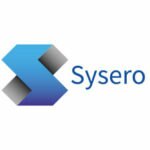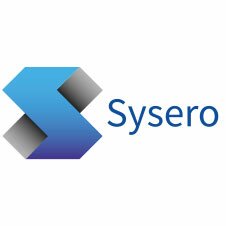Sysero: The client opportunity: legal self-service portals
Today’s legal services clients want greater control, speed, and quality. One way that law firms are stepping up to the challenge is by tapping into the power of self-service client portals.
Self-service portals are a concept that has long been employed by customer service and support teams to provide immediate, on-demand service. However, the concept has recently started to make its way into the legal sphere – and for good reason. With service differentiation becoming a primary battleground for winning and retaining clients, more law firms are turning to self-service portals to provide clients with instant access to legal documents.
This always-available model of service can provide a true competitive advantage for today’s firms. Not only does self-service save time, resources, and costs for the law firm, but it also empowers legal teams to create their own legal documents on-demand, without assuming any additional risk.
Here, we look at some of the top advantages that self-service portal provide to legal clients.
New services, no software required
As anyone who has worked in a corporate office knows, installing new software on your computer can be quite the challenge. With client portals, in-house counsel can easily gain access to digital legal services, without the need for additional software. They can simply log on from any computer and start generating legal documents.
The cloud-based portals are hosted and maintained by the law firm, so clients can be assured that the documents they create are up-to-date and ready-to-use. Additionally, with a fixed, predictable fee, it’s easier for clients to project and budget across the services lifecycle.
Enhanced data security and built-in compliance
As information security concerns mount, keeping data protected and secure is paramount for today’s organisations. Fortunately, self-service portals can come with enhanced data security and compliance built-in to the platform.
For example, Sysero’s self-service portal ensures client data is stored, managed and protected in accordance to cybersecurity and compliance best practices:
Encryption: Personal data entered into a Sysero portal can be encoded and configured so that it is only visible to specific users. The encrypted data appears scrambled or unreadable to an individual or entity attempting to access the data without permission.
Pseudonymisation: The process of pseudonymisation adds an additional layer of security to protect sensitive data. The process involves replacing the most identifying fields within a data record, such as Social Security Number, with artificial identifiers. This ensures that even if stolen, data cannot be directly associated with an identity.
Backups: Sysero’s client portals come with fully-managed, automated and secured data backups, which ensures that all client data is appropriately backed up and can be quickly accessed in case of down time.
Data Sanitization: One of the key principles of GDPR and data security in general is to not hold data any longer than required. As part of Sysero’s portals, data can be assigned an expiration date to ensure it’s removed once it’s served its purpose. The same concept can also be applied to documents and transactions to comply with regulations.
Maintain greater control
Self-service portals provide clients with instant access to legal expertise, guide users through specific legal processes, provide options for different scenarios and offer a centralised platform for managing transactions. Many of our law firm clients partner closely with their clients to determine how their portal looks, works and integrates with the rest of the business.
Each client portal can be completely customised to suit the unique requirements of in-house legal teams to facilitate greater internal efficiency and enhanced collaboration with their firms.
The potential for self-service legal portals is endless – for both law firms and their clients. Forward-thinking firms are already approaching clients to collaborate on customised self-service portals, and in the next year, we expect the trend to continue as client demands evolve with the pace of technology.
To learn more about your firm’s clients can benefit from self-service client portals, get in touch with us or check out our client automation portal demo.



